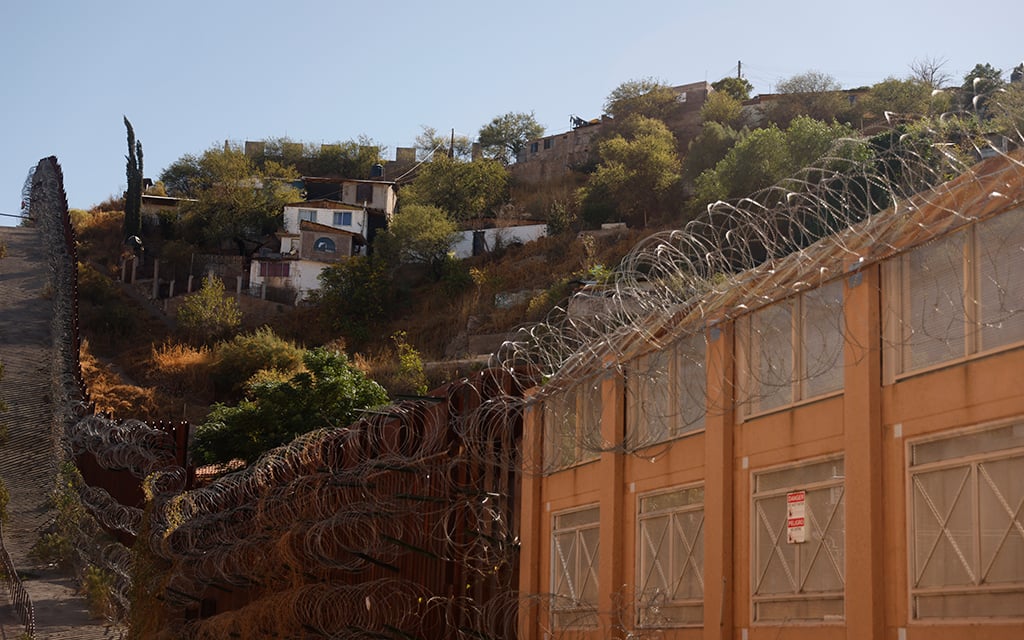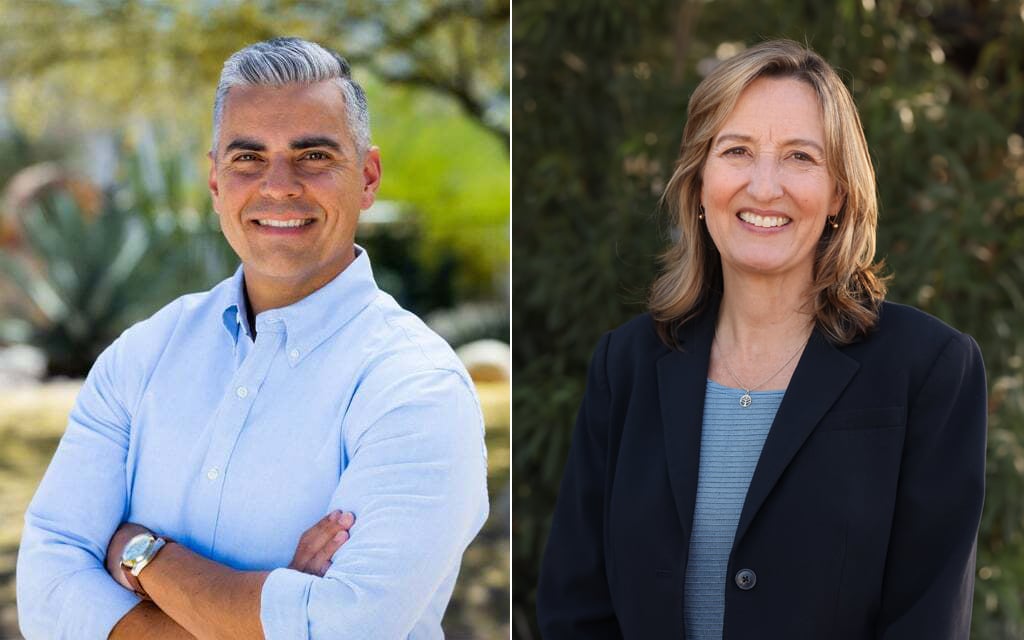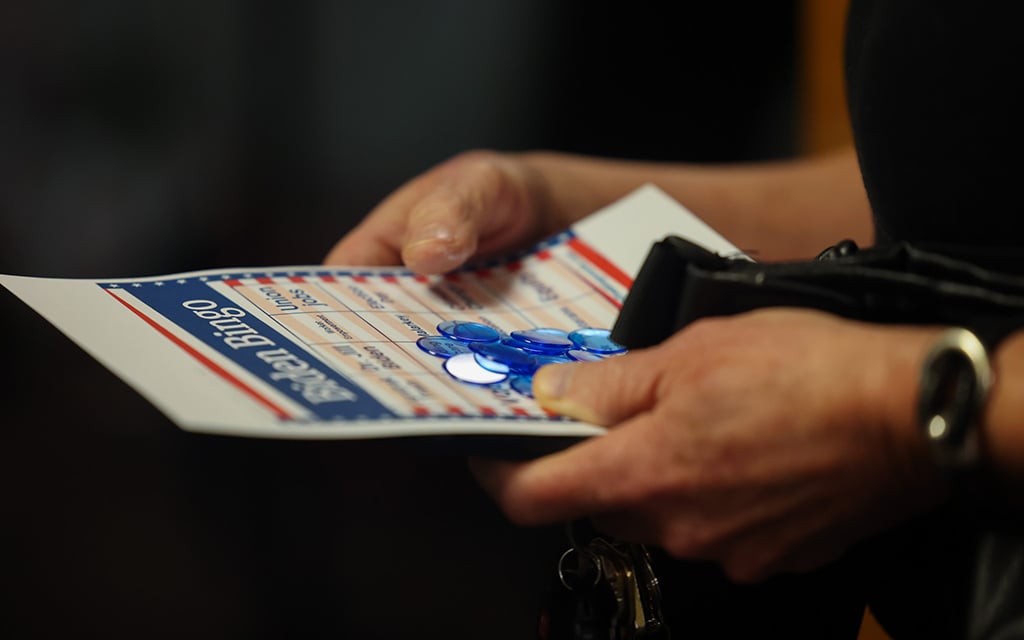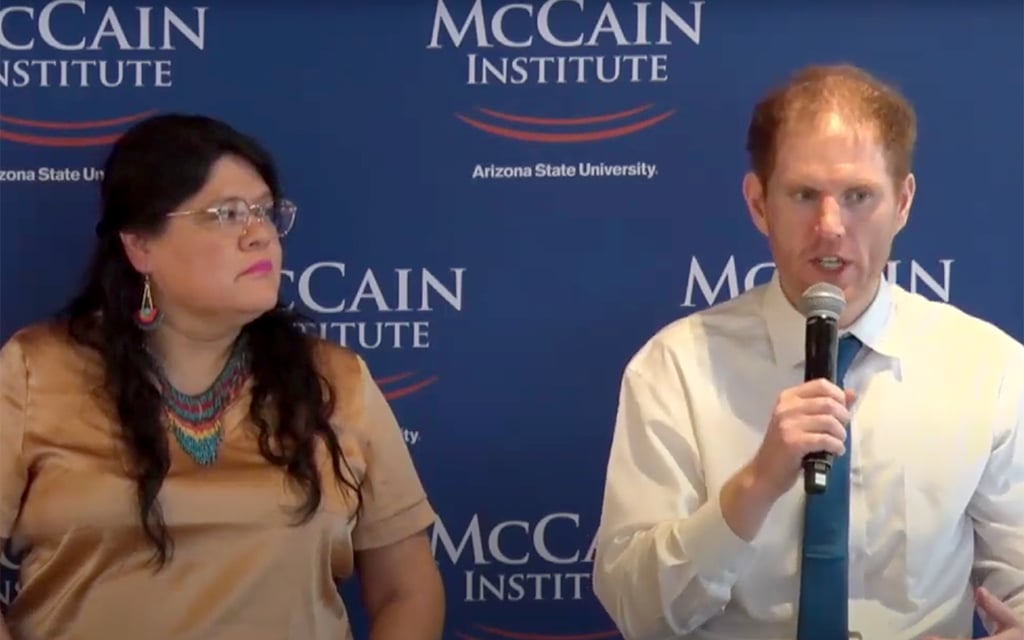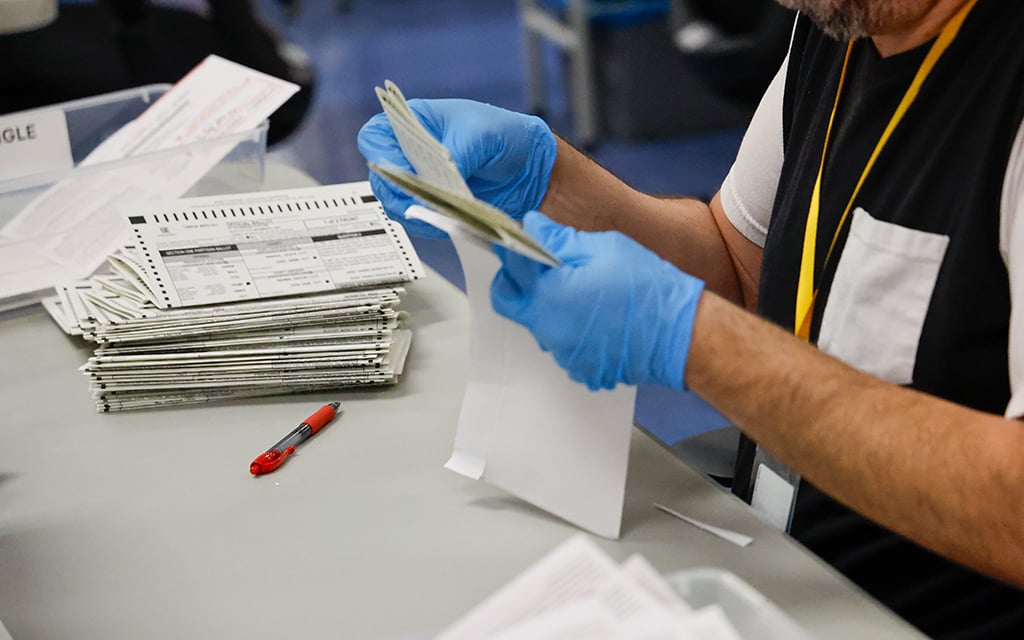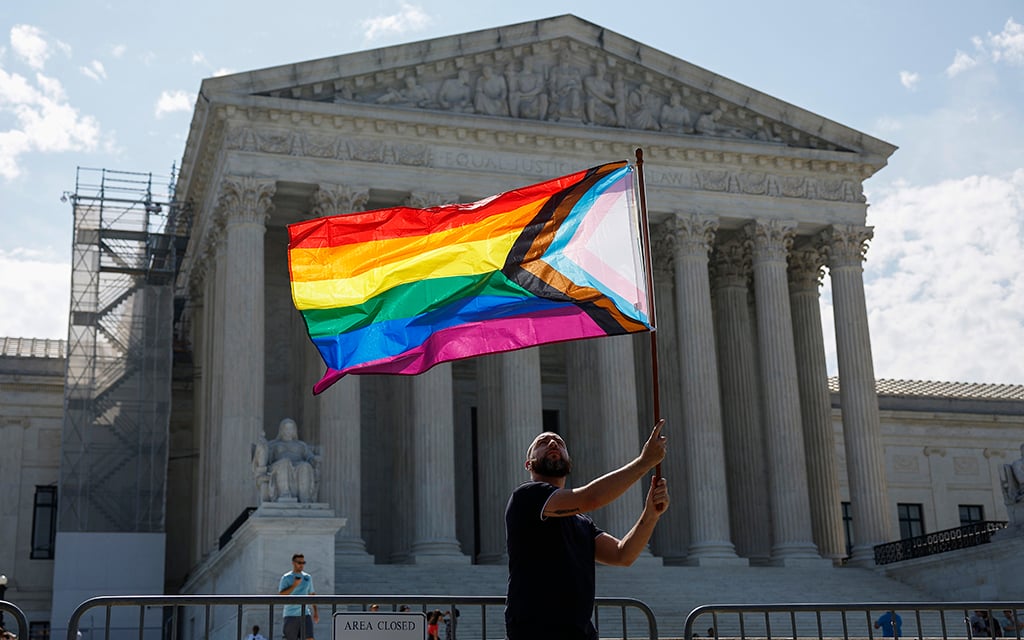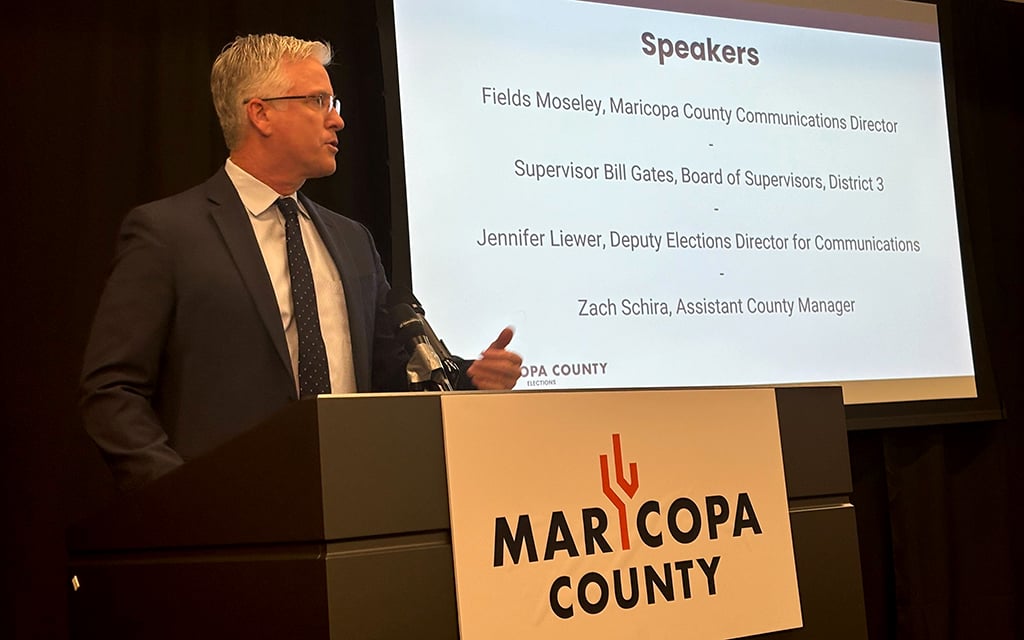NOGALES, AZ – Working directly at Arizona’s border, Nogales Mayor Jorge Maldonado believes local police should not have to deal with immigration.
“If they want to fund me for resources, might as well give it to people who do that job,” he said. “Ours are not trained to do immigration.”
In a meeting with Walter Cronkite School of Journalism and Mass Communication students, Maldonado expressed his opposition to Arizona Proposition 314, which would authorize local law enforcement, under “probable cause,” to detain and deport individuals entering the state outside lawful ports of entry.
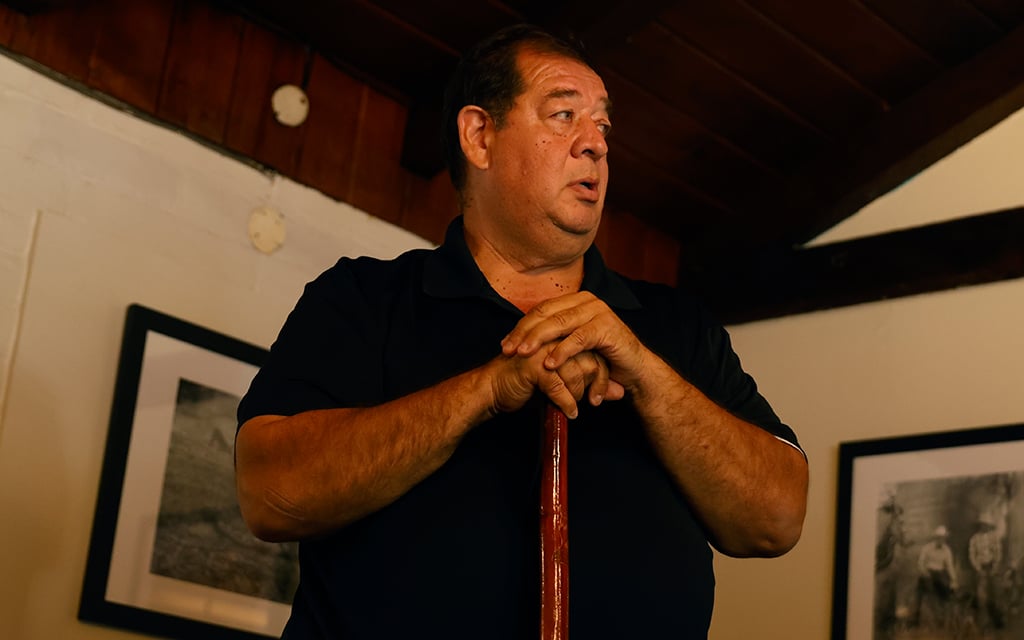
City of Nogales Mayor Jorge Maldonado says, “If they want to fund me for resources, might as well give it to people who do that job. … Ours are not trained to do immigration.” Photo taken on Oct. 29, 2024, in Nogales, Arizona. (Photo by Gabriel Garza/Cronkite News)
Sen. John Kavanagh, R-Fountain Hills, is a supporter of the proposition and told Cronkite News “the cop has to see the person cross the border, so there will be zero enforcement under this particular law other than at the border itself.”
At an Oct. 10 news conference organized by the American Business Immigration Coalition in Phoenix, Santa Cruz County Sheriff David Hathaway expressed his concerns about local law enforcement handling federal duties.
“I’m gonna steal something (Pima County Sheriff) Chris Nanos said, ‘Border Patrol does not want to do my job, and I don’t want to do Border Patrol’s job.”
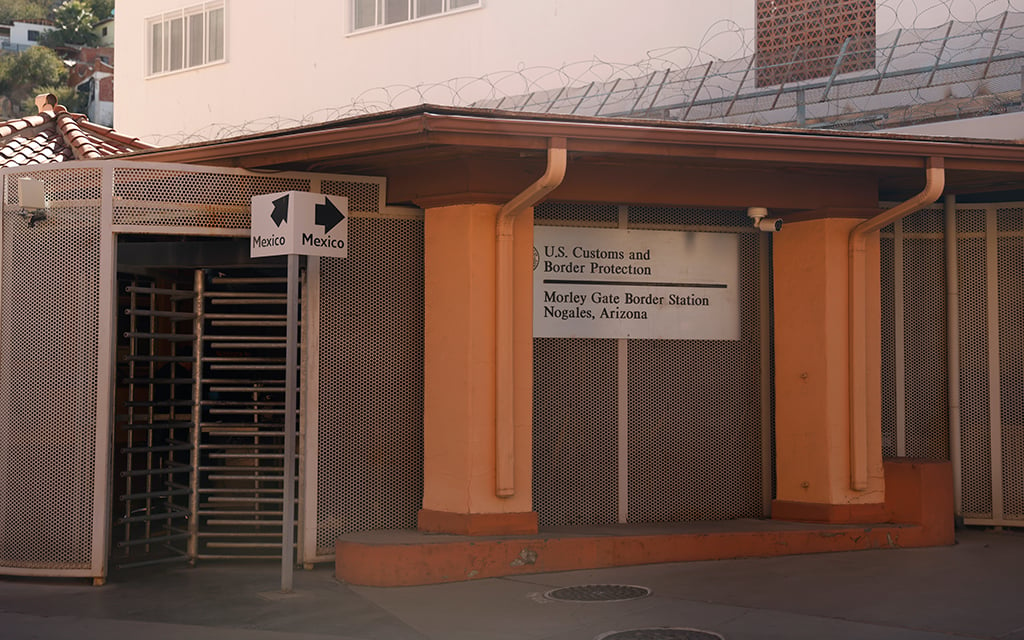
On Oct. 29, 2024, The Morley Gate only allows pedestrian passage between Nogales, Arizona, and Nogales, Mexico. (Photo by Gabriel Garza/Cronkite News)
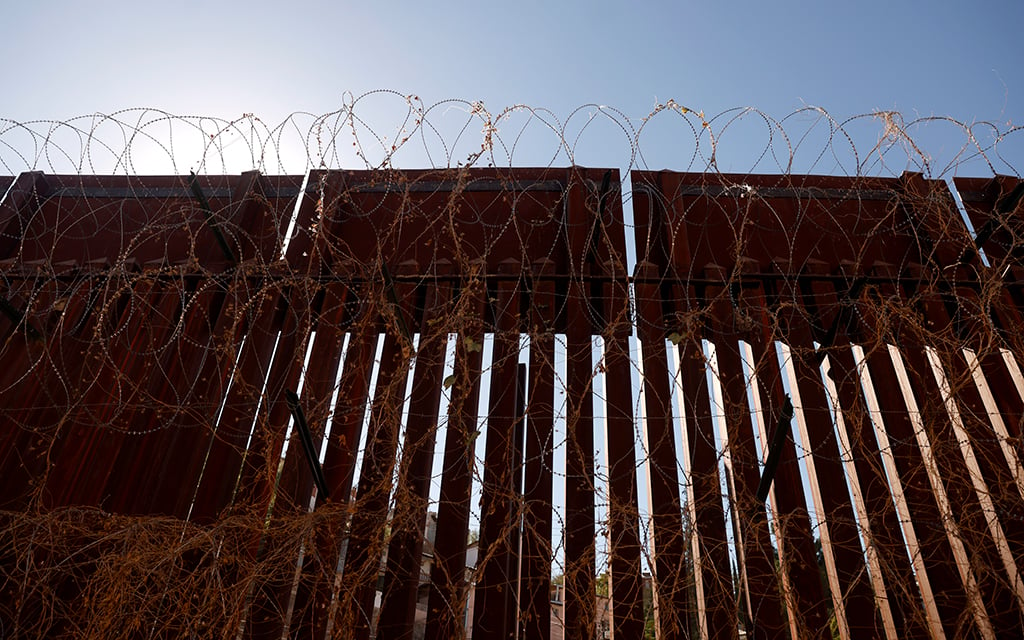
The border wall stands with 18-foot bollard fencing made of steel and concrete to separate Mexico and the U.S. Photo taken on Oct. 29, 2024, in Nogales, Arizona. (Photo by Gabriel Garza/Cronkite News)
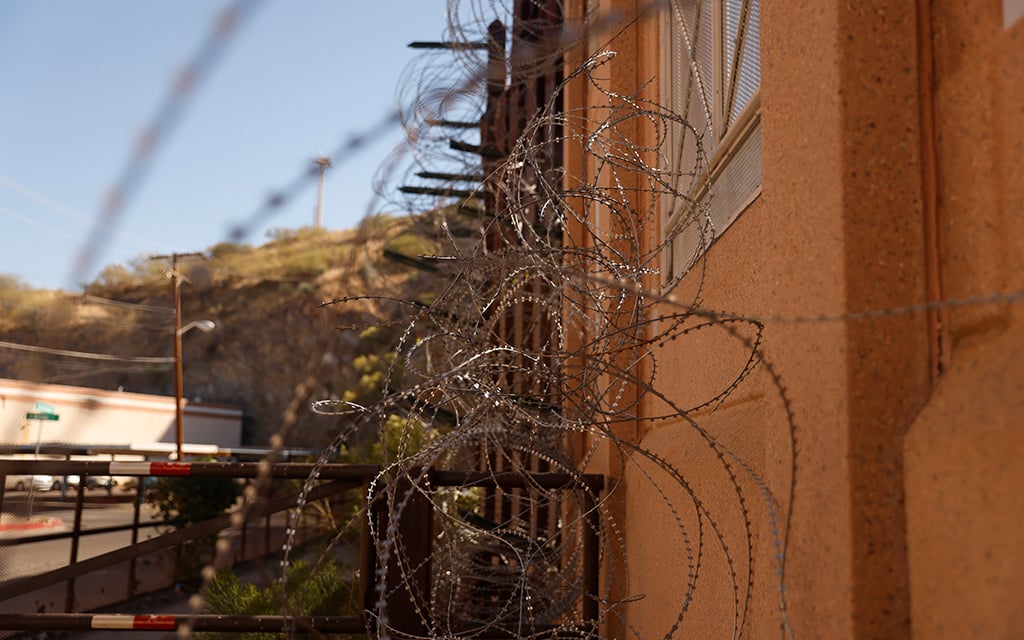
Barbed wire adds an extra layer of security to the border wall. Photo taken on Oct. 29, 2024, in Nogales, Arizona. (Photo by Gabriel Garza/Cronkite News)
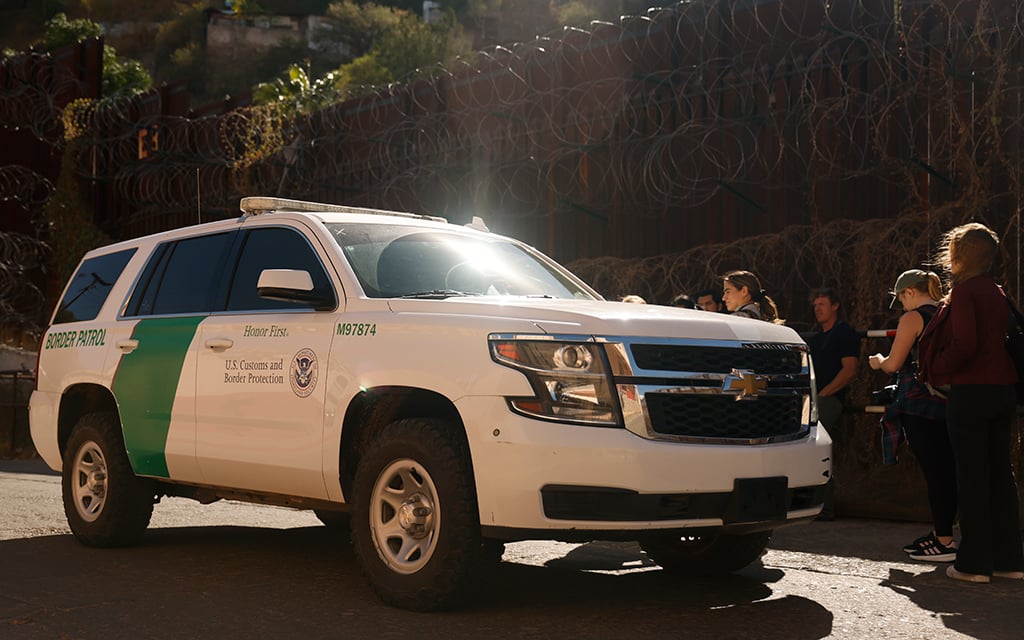
A Border Patrol agent briefly speaks to a class in front of the border fence in Nogales, Arizona, on Oct. 29, 2024. (Photo by Gabriel Garza/Cronkite News)
The Grand Canyon Institute, a nonpartisan organization, estimates it would cost $325 million annually to cover the cost of implementation. Kavanagh said the state has allocated $56 million for local police border enforcement.
“If it goes above that, we can always do a supplemental in the current year’s budget to take care of any shortfall,” Kavanagh said.
But other legislators expressed budget concerns.
“We are sending this ballot initiative that is riddled with constitutional problems to the voters and telling them, ‘We’ll send you the receipt later, it could cost you millions of dollars, it could cost a billion dollars, we’ll let you know later,’” State Rep. Analise Ortiz said at the ABIC news conference. “If we think that our public schools are unfunded now, imagine what it’s going to be like when we are forced to pay (that cost).”
Prop. 314 is often compared to Arizona’s Senate Bill 1070, also known as the Support Our Law Enforcement and Safe Neighborhoods Act, which authorized state and local law enforcement in 2010 to arrest individuals without a warrant due to “reasonable suspicion.”
SB 1070 faced legal challenges, and the courts blocked provisions they believed would invite racial profiling.
Prop. 314 is modeled after Texas’ Senate Bill 4, which is tied up in the courts.
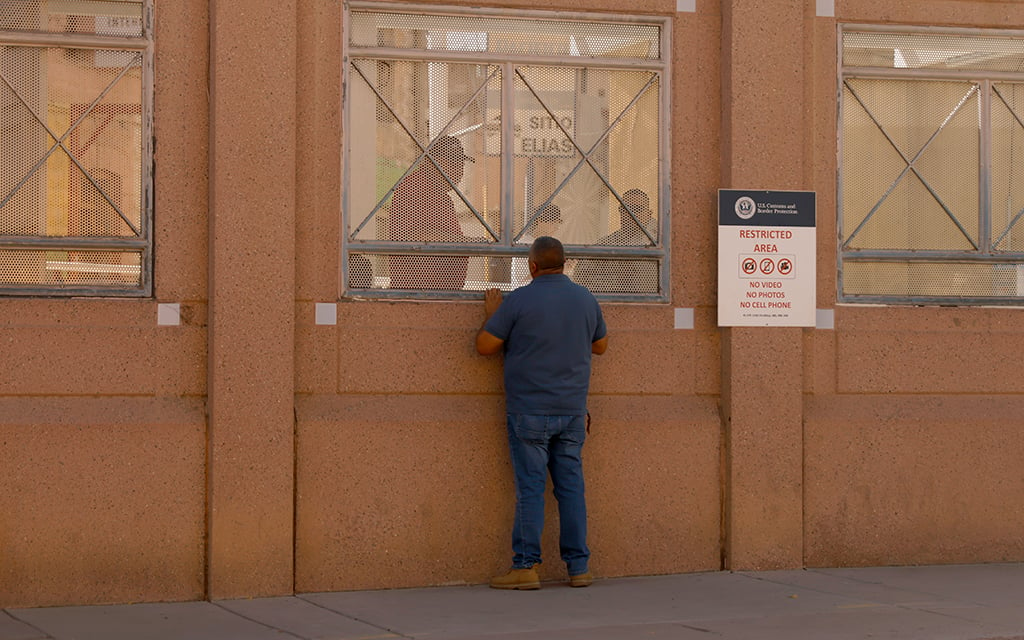
A man holds onto the wall that separates the United States and Mexico while talking to individuals on the other side on Oct. 29, 2024,in Nogales, Arizona. (Photo by Gabriel Garza/Cronkite News)
“If the Texas law, which we modeled this after, is found unconstitutional by the U.S. Supreme Court, our 314 dies and our 314 doesn’t go into effect until the federal courts say it’s legal,” Kavanagh said.
If the policies are allowed to go into effect, former President Donald Trump has said using local police will enable the largest deportation in American history.

